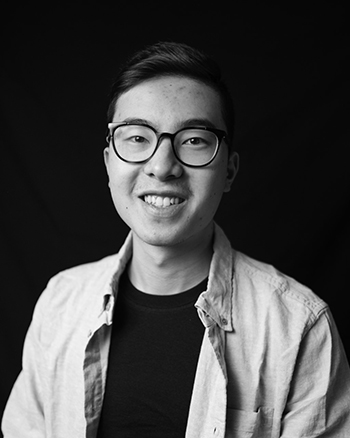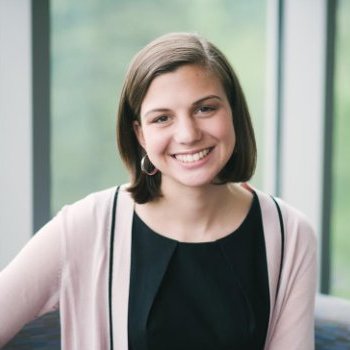Ben Yan
How would you describe the major you designed?
My major is called Humans at Work. Borrowing a phrase from industrial/organizational psychologist Adam Grant, I wanted to study how to make work “not suck.” As someone with a broad set of interests as well as a desire to pursue graduate studies, I tailored my coursework and activities to give me the flexibility to follow my curiosities (studying Dutch art history while abroad in the Netherlands) and the rigor to prepare me for graduate school (enrolling in a statistics class for first-year Ph.D. students).
Why did you choose to pursue a B.Phil?
In the fall semester of my sophomore year, I was in charge of a student-run cafe, where I was responsible for over 70 employees and often worked over 80 hours per week. I was fortunate to have great friendships with my team members, which kept the workplace fun and me from becoming unhinged. The experience was transformational and made me want to learn more about the science of work. B.Phil. was a great fit because I needed to combine coursework in multiple majors and colleges in order to really explore this theme.
What is your capstone project?
Building off of my anecdotal experience at the cafe, I worked with my advisor, Dr. Michael Tews, to explore the question “how do workplace relationships impact loneliness in young adults?” I conducted literature reviews, collected and analyzed qualitative and quantitative data, wrote a thesis, and defended my research to the B.Phil. committee.
What do you do now?
I am a Research Analyst for Nielsen, where I conduct brand lift studies of advertisements on LinkedIn and TikTok. In the future, I want to apply my research capabilities to make an impact on our food system. To satisfy my interest in food and as a labor of love, I currently also work part-time as a line cook at Tomo, a restaurant in Seattle.
What advice do you have for new B.Phil. students?
Follow your curiosity and find your focus. I worked on three research ideas before settling on my capstone topic. It’s great to go after something you are passionate about, but it is also important to be practical and plan carefully around how you can finish in a timely manner. Your faculty mentor will make or break your experience. Do your research. I found mine by Googling “Fun at Work Penn State.” I got lucky.

Dani Lichliter
Bachelor of Philosophy, Non-Profit Management with an International Emphasis
How did you learn about the B.Phil. program?
I stumbled upon the B.Phil. program during my freshman year while reading through all the majors on psu.edu. It piqued my interest at that point, but I was still very much undecided and didn't know what I wanted to study. I stayed in DUS and tried out several different majors, then joined Hospitality Management, before ultimately deciding a B.Phil. was right for me. I had an initial meeting with the B.Phil. advisor who helped me shape my interests and curiosities into a coherent major: Non-Profit Management with an International Emphasis.
How did you choose your capstone project?
I took a class called SOC 300 - International Dialogues which is run through the on-campus non-profit organization World in Conversation. During this class, I had the chance to Skype with students in Israel and Gaza and learn more about the Israel-Palestine conflict. It was fascinating, incredibly complex, and at times, heartbreaking. I knew I wanted to learn more so I decided to do my capstone project about a reconciliation program that brings kids from Israel and Palestine to the US for a summer camp.
What do you do now?
I am currently living in Buenos Aires, Argentina working as a freelance marketer for an education startup and an environmental startup. After graduation, I also worked for startups in the Bay Area that have a social bottom line and really care about making a positive impact on the world. This makes my work very rewarding and working at a startup means I'm learning a ton, challenged daily, and constantly getting to try new things.

Mary Beth Spang
Bachelor of Philosophy, Linguistics
Bachelor of Arts, English and Spanish
How did you learn about the B.Phil. program?
I learned about the B.Phil. program from one of my professors during my freshman year. I took an introduction to linguistics course in my first semester and quickly decided that I wanted to continue taking linguistics courses. My professor shared that while a ‘typical’ major in linguistics did not exist, there was another way that I could continue taking these courses and create a personalized curriculum to earn my degree. She connected me to an advisor who had worked with B.Phil. students to discuss the process.
How did you choose your capstone project?
I was majoring in Spanish along with completing the B.Phil. program, so my adviser and I decided that a Spanish linguistics lab would be a good fit. My advisor helped me to find a lab, a professor, and a research topic in the Center for Language Science. Working in this lab as a research assistant helped me to meet the incredibly wonderful Spanish linguistics faculty at Penn State, while learning from graduate students about their development of research interests, ‘running’ participants, and academic literature within the field of Spanish linguistics. The faculty involved with the Center for Language Science were extremely supportive and motivated me to reach out to a professor, Dr. John Lipski, whose sociolinguistic field research in Colombia fascinated me. I was able to develop my capstone project around the previous research that he and a few other sociolinguists had conducted in this area. I feel very fortunate to have had the opportunity to travel with Dr. Lipski and our other lab mates to carry out my project, and to have worked in that same lab throughout my senior year to complete the project.
What do you do now?
I work in Penn State’s Division of Development and Alumni Relations as a major gifts officer for the College of Education. In this role, I work with alumni and friends of the College of Education to strengthen their relationship to Penn State, while also securing significant philanthropic support for students and faculty. The B.Phil. program’s requirement to complete a capstone project pushed me to create a long-term goal and helped me to develop many skills that I use in my job today, such as writing, travel planning, researching, and analyzing data.

Beaonca Ward
How did you learn about the B.Phil. program?
I learned about B.Phil. while I was working as a teaching assistant for BISC 3. A B.Phil. student came in and spoke to the class about her experience creating a documentary for her capstone project. Her story and experience resonated deeply with me and inspired me to join. I already had experience as a life coach and wanted an opportunity to think about my practice more deeply. The major I created allowed me to study both traditional and less traditional mindfulness-based approaches in the helping professions.
What was your capstone project?
I conducted a research study, investigating how life coaching can help people navigate the challenges of emerging adulthood. I coached 10 women for 15 weeks, analyzed recordings of those coaching sessions, and created a questionnaire. The study was designed to tangibly track individuals’ experiences of coaching and record any positive growth they achieved. I presented the findings from the study as a podcast series.
What advice do you have for new B.Phil. students?
Create the course of study that you feel most passionate about, even if you are a bit scared. Be as creative as possible and choose something that will both challenge and motivate you. Find as many resources as possible, as early as possible, to support your capstone project. Finding good mentors is particularly helpful. In addition to my faculty mentor, I reached out to a lot of professional life coaches, who were very kind and willing to provide insight and support.
What do you do now?
I am a certified life and spiritual coach. I also work as a motivational speaker.


